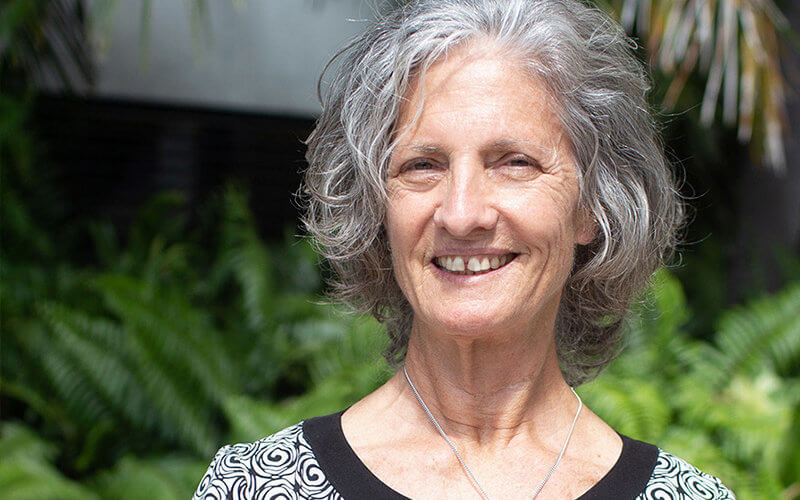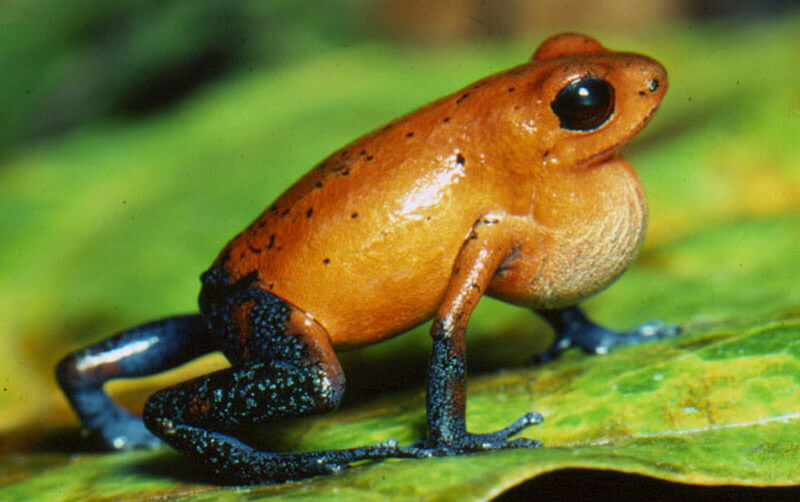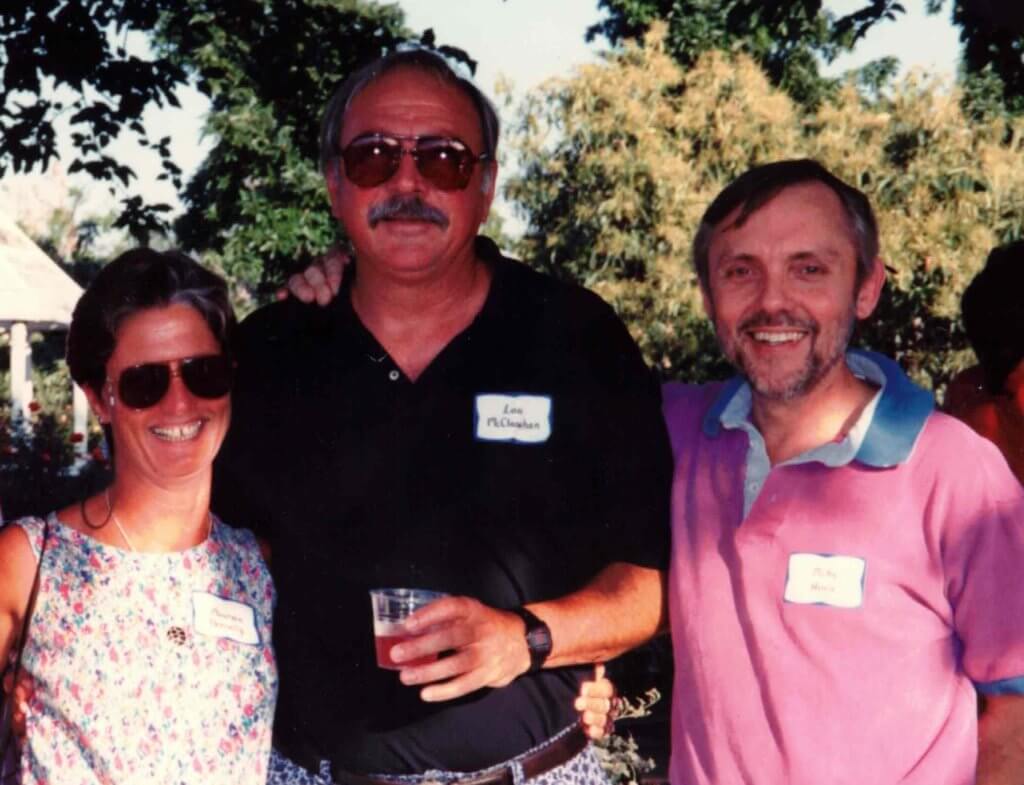
Conservation biologist and alumna Maureen “Mo” A. Donnelly has had a 50-year affection for poison-dart frogs that live in Central and South America rainforests.
Donnelly has spent her career studying the tiny strawberry poison-dart frog with bright red skin in Costa Rica and other tropical critters like salamanders, lizards and snakes.
Since graduating with honors from Cal State Fullerton in 1977, Donnelly has dedicated her decadeslong career to the ecology, behavior and conservation of tropical amphibians and reptiles.
“The diversity of amphibians and reptiles is amazing,” said Donnelly, who earned a bachelor’s degree in biological science. “The diversity of reproductive modes in amphibians — second only to fish — captured my fancy early on, and they continued to amaze me during my career in biology.”

For her research accomplishments, Donnelly received the 2023 Henry S. Fitch Award for Excellence in Herpetology from the American Society of Ichthyologists and Herpetologists, the highest honor within the field of amphibian studies.
Donnelly, a professor of biological science at Florida International University since 1994, was nominated for the national accolade by her students for her many contributions to the field. She is the 25th recipient and only fourth woman to receive the award.
“It means everything to me as a herpetologist to be recognized for my research, teaching and service efforts,” said Donnelly, who served as the society’s president in 2016, secretary for 15 years and even helped write the award’s protocol in the late 1990s.
“To receive this award is a testament to all my mentors, including at Cal State Fullerton. I thank all of them for helping me get to this place where I can make an impact on my field.”
At the University of Miami, where she earned a doctorate in 1987, Donnelly focused her dissertation on the poison-dart frog and the development of tadpoles and their environment. During her career, she examined the loss of amphibians and reptiles and identified widespread declines in species and habitats.
CSUF Paved the Way to Becoming a Herpetologist
Donnelly recalled how her CSUF educational experiences gave her opportunities to pursue graduate studies and prepared her for a teaching and research career in higher education.
“My education at CSUF made my career in biology possible. I discovered early on in my college education that I was interested in field biology and learned how to do field biology at CSUF,” she said. “The professors helped me develop my skills by getting me out in the field as frequently as they could.”

Donnelly credits mentors like the late biologist Lon McClanahan, who took his students to the local canyons and deserts and pushed them to “do science” in the field.
She also recalled how the late C. Eugene (Gene) Jones almost converted her to becoming a botanist, and Bayard H. Brattstrom, professor emeritus of zoology, encouraged her to become a researcher. And Michael H. Horn, professor emeritus of biological science, was an example of what “scholars did.”
“All of these professors instilled in me the knowledge that I could make a career in field biology,” she said.
What’s been most meaningful throughout her career has been mentoring graduate students and helping them with their research endeavors.
To help support CSUF’s master’s students, she is a donor to the Violet Horn Graduate Research Fellowship in Ecology, Evolution and Conservation Biology.
“The Violet Horn fellowship aligns with aspects of education that are important to me. I am delighted to contribute to a fund that helps graduate students,” Donnelly shared.
The fellowship was established in 2015 by Horn in memory of his aunt, an award-winning teacher. Each year, a graduate student is selected to receive the $10,000 fellowship and gets the opportunity to pursue research alongside a faculty mentor.
Donnelly, who lives in Miami, added it’s important to her to give back to her alma mater.
“I would not be where I am today without the education I obtained at CSUF. I feel lucky to be able to help support the academic missions I care about.”